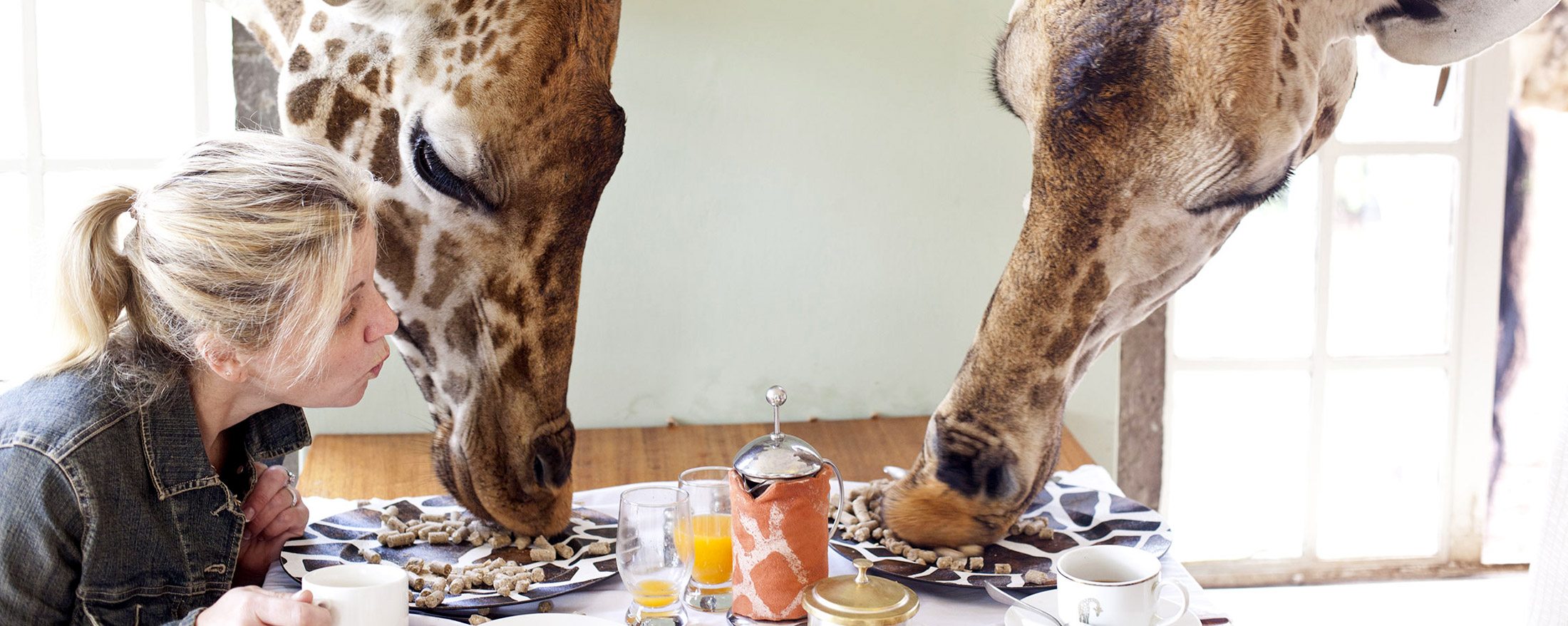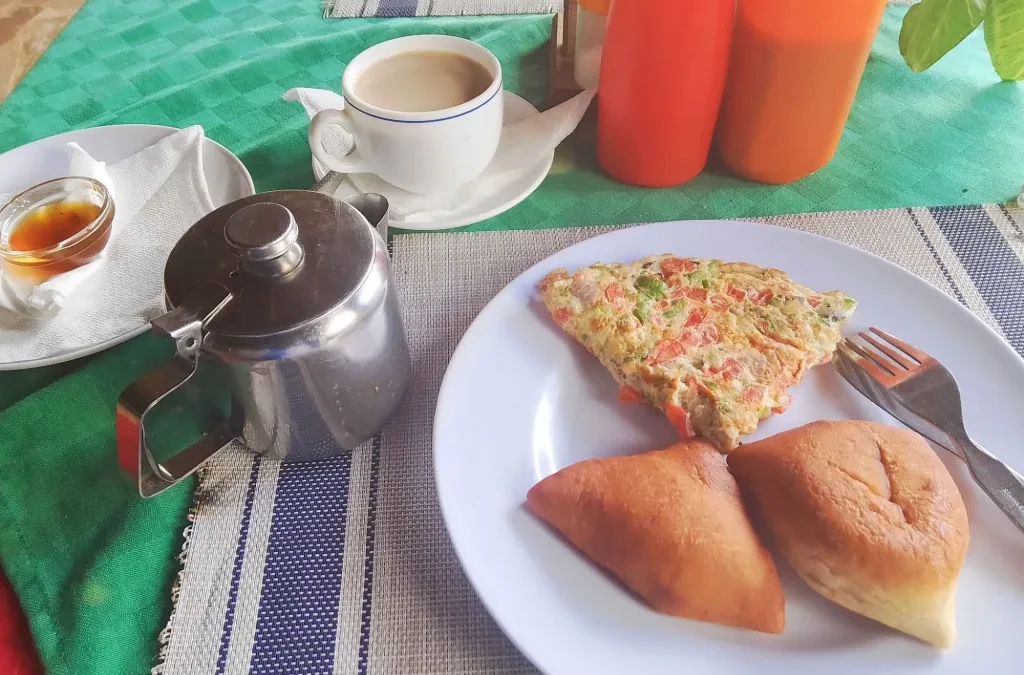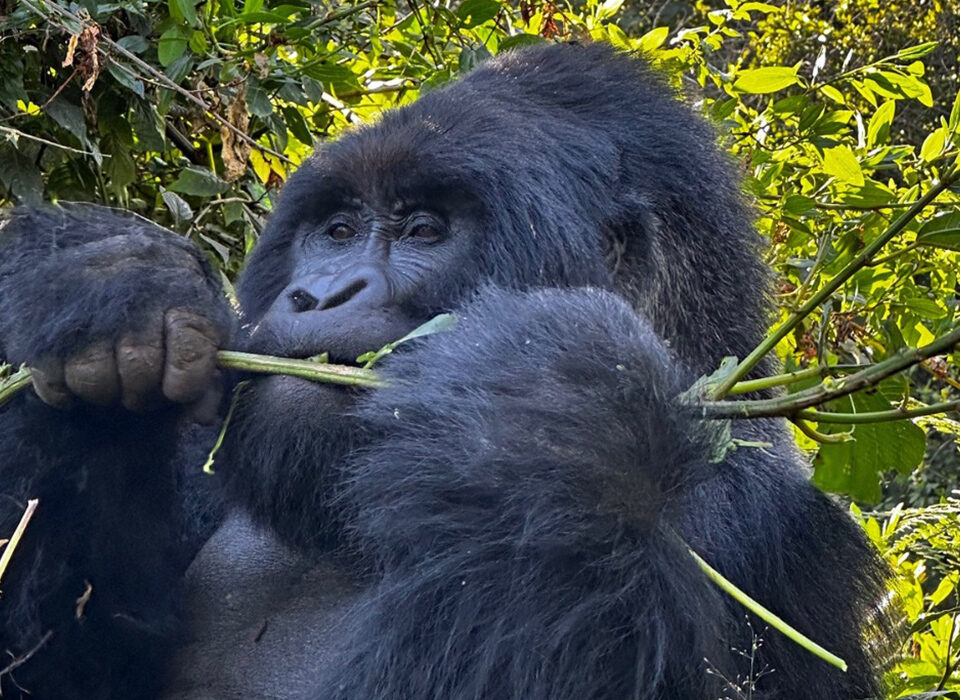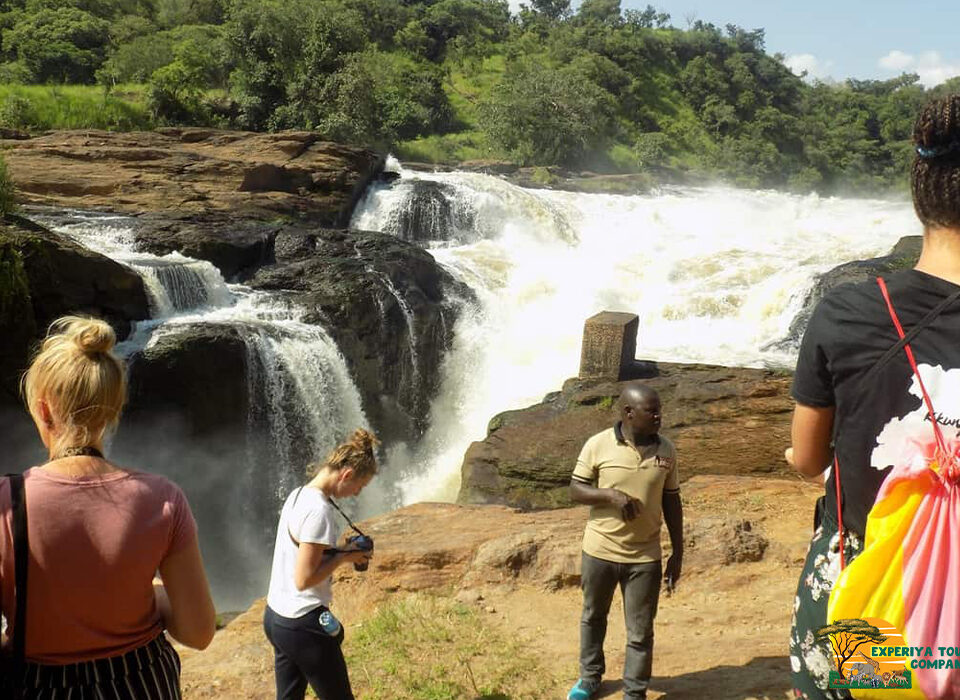
What music is popular in Kenya?
November 19, 2025
What are Kenya’s national parks known for?
November 19, 2025What Is a Typical Kenyan Breakfast?
Breakfast in Kenya is more than just the first meal of the day—it is a comforting ritual rooted in family life, cultural identity, and regional flavors. Whether enjoyed in a bustling Nairobi café, a seaside home in Mombasa, or a quiet village in the highlands, Kenyan breakfast reflects the country’s diversity and love for hearty, flavorful meals.
Many travelers who visit Kenya discover that breakfast varies widely depending on the region, ethnic traditions, access to ingredients, and personal preferences. Yet certain foods appear consistently across the country because they are nostalgic, practical, and deeply embedded in the Kenyan culinary lifestyle.
So, What is a typical Kenyan breakfast? The answer unfolds into a world of warm chapatis, fluffy mandazis, rich Kenyan tea, fresh fruits, spiced beans, and comforting starches loved from childhood through adulthood. Exploring these dishes offers a window into Kenya’s culture, home life, and culinary traditions.
Kenyan Tea
At the center of nearly every Kenyan breakfast is tea—known locally as chai. Kenyan tea is famous around the world for its strong aroma, deep flavor, and rich color, and it plays a starring role in the morning routine.
Most Kenyans drink chai made with a mixture of tea leaves, water, milk, and sugar. The milk is boiled together with tea to create a creamy, fragrant cup that warms the soul. In many homes, cardamom, ginger, cinnamon, or cloves are added to create a spiced chai that rivals India’s masala tea.
Kenyan chai is not simply a drink—it is a symbol of hospitality, comfort, and togetherness. It is common for families to gather around a steaming pot early in the morning, catching up before the day begins or sipping slowly while preparing breakfast on a wood-fired stove or gas cooker.
In cities, coffee is increasingly popular as well, especially from Kenya’s world-renowned coffee regions like Nyeri, Kirinyaga, and Embu. However, chai remains the traditional favorite and is the one drink nearly every Kenyan associates with breakfast.
Bread, Butter, and Jam
Bread has become a staple in urban and peri-urban Kenyan breakfasts. Bakeries across the country—big and small—deliver fresh loaves daily, and toast with butter and jam is one of the most common breakfast items, especially for families with school-going children.
Some households enjoy bread with peanut butter, margarine, avocado slices, or fried eggs. Others prepare “Kenyan French toast,” known locally as toast mayai—bread dipped in a seasoned egg mixture and fried to golden perfection.
This simple but satisfying meal is often paired with chai and fresh fruit, making it one of the most accessible breakfast options across Kenya.
Mandazi
Mandazi is one of Kenya’s most iconic breakfast foods. Originating along the Swahili Coast, mandazi are triangular or round doughnuts flavored with coconut milk, cardamom, and a hint of sugar.
When fried, they turn golden brown on the outside and soft on the inside. They pair perfectly with chai and are especially popular in Nairobi, Mombasa, and rural homes.
Families often prepare mandazi in large batches to last several days, making them convenient for busy mornings. The aroma of freshly fried mandazi often fills Kenyan homes early in the day, creating nostalgic memories that stay with people long after childhood.
Chapati
Chapati—soft, layered flatbread introduced by Indian immigrants during the colonial era—has become a national favorite. While chapati is often served during lunch or dinner, many Kenyan households love it for breakfast, especially during weekends or special occasions.
Chapati is typically enjoyed with:
• beans cooked in tomato and onion sauce
• ndengu (mung beans) simmered with spices
• scrambled eggs
• tea or coffee
• avocado slices
Chapati breakfasts are hearty, flavorful, and deeply satisfying. Learning to cook soft, flaky chapatis is considered a valuable skill in many Kenyan cultures, and the dish is associated with warmth, family, and celebration.
Mahamri and Viazi Karai
The Kenyan coast has a unique culinary identity shaped by centuries of Arab, Indian, and African fusion. Breakfast on the coast is famous for its rich flavors and use of coconut.
Two beloved coastal breakfast items are:
Mahamri: A coconut-infused doughnut similar to mandazi but spiced more intensely and often eaten with mbaazi (pigeon peas cooked in coconut milk).
Viazi Karai: Deep-fried, spiced potatoes often eaten with chutney or ukwaju (tamarind sauce).
Coastal homes may also serve coconut chapati, vitumbua (rice cakes), or mkate wa sinia (a sweet rice and coconut cake).
Travelers visiting Mombasa, Lamu, or Malindi during breakfast hours often describe coastal breakfasts as some of the most delicious meals they experience in Kenya.
Porridge
Porridge—called uji—is another essential Kenyan breakfast, especially among children, the elderly, and health-conscious families. Made from millet, sorghum, or maize flour, uji is valued for its nutritional benefits.
Traditional uji is cooked with water and allowed to thicken into a smooth, warming drink. Modern variations may include milk, sugar, lemon, peanuts, honey, or fermented flour that gives the porridge a slightly sour, probiotic-rich flavor.
In many communities, particularly the Luo, Luhya, and Kalenjin, uji is part of longstanding cultural traditions and is served during ceremonies, gatherings, and daily breakfasts.
Eggs, Sausages, and Modern Kenyan Breakfast Plates
Urbanization, global influence, and the rise of cafés have introduced more western-style breakfast plates into Kenya’s morning culture.
In Nairobi and other cities, it is common to find:
• eggs (fried, boiled, or scrambled)
• sausages
• bacon
• pancakes
• hash browns
• baked beans
• toast
While these breakfasts are popular in hotels and restaurants, many Kenyan families still prefer traditional staples during weekday mornings but enjoy modern options during weekends or special outings.
Githeri and Leftover Meals
In rural areas and among agricultural communities, breakfast may also include leftovers from the previous night.
Meals such as githeri (a mix of boiled maize and beans), ugali with sukuma wiki, or roasted sweet potatoes and yams are common morning foods. These meals are filling, inexpensive, and provide long-lasting energy—especially for people involved in farming or manual labor.
Sweet potatoes and cassava are particularly traditional Kenyan breakfast items, cherished for their simplicity and natural flavor.
Fresh Fruit and Local Produce
Kenya’s fertile land produces abundant fresh fruits enjoyed as part of breakfast or as snacks during the morning.
Popular fruits include:
• bananas
• mangoes
• papayas
• pineapples
• avocados
• oranges
• watermelon
Fruit salads or whole fruits often accompany chai, mandazi, or bread-based breakfasts. In cities, smoothie bowls and blended juices have become part of modern breakfast culture.
Breakfast Culture in Kenyan Hotels and Safari Lodges
Travelers staying in safari lodges, beach resorts, or boutique hotels will find expansive breakfast spreads that combine traditional Kenyan dishes with international options.
A typical Kenyan hotel breakfast may include:
• chai and coffee
• mandazi, mahamri, chapati, or pancakes
• eggs and sausages
• baked beans
• tropical fruit platters
• cereals and yogurt
• fresh juices
This blend ensures that travelers experience Kenyan flavors while enjoying familiar comfort foods.
The Meaning of Breakfast in Kenyan Life
Breakfast in Kenya goes beyond food—it represents togetherness, culture, and hospitality. Whether shared around a wooden table in a rural homestead or enjoyed in a modern Nairobi café, breakfast connects families and welcomes guests.
The variety of Kenyan breakfast dishes speaks to the country’s diversity, resourcefulness, and respect for both tradition and innovation. Every region contributes something unique, making breakfast an exciting cultural journey in itself.
What Is a Typical Kenyan Breakfast?
A typical Kenyan breakfast can range from chai and bread to mandazi, chapati, porridge, sweet potatoes, coastal mahamri, or modern egg plates. The beauty of Kenyan breakfast lies in its diversity—each region, household, and culture adds its own flavor and tradition.
For travelers, exploring Kenyan breakfast is an unforgettable culinary adventure that reveals the warmth, creativity, and richness of Kenyan daily life.
To experience Kenya’s traditional breakfasts, vibrant culinary culture, and diverse travel destinations in a seamless and enriching way, consider booking your journey with Experiya Tour Company. Their expert-guided tours ensure that you enjoy not only Kenya’s landscapes and wildlife but also its authentic food traditions and everyday cultural experiences.




